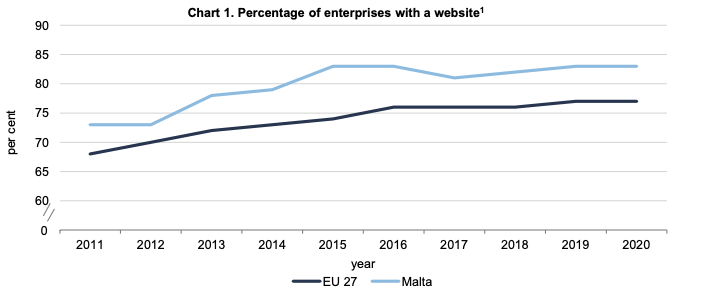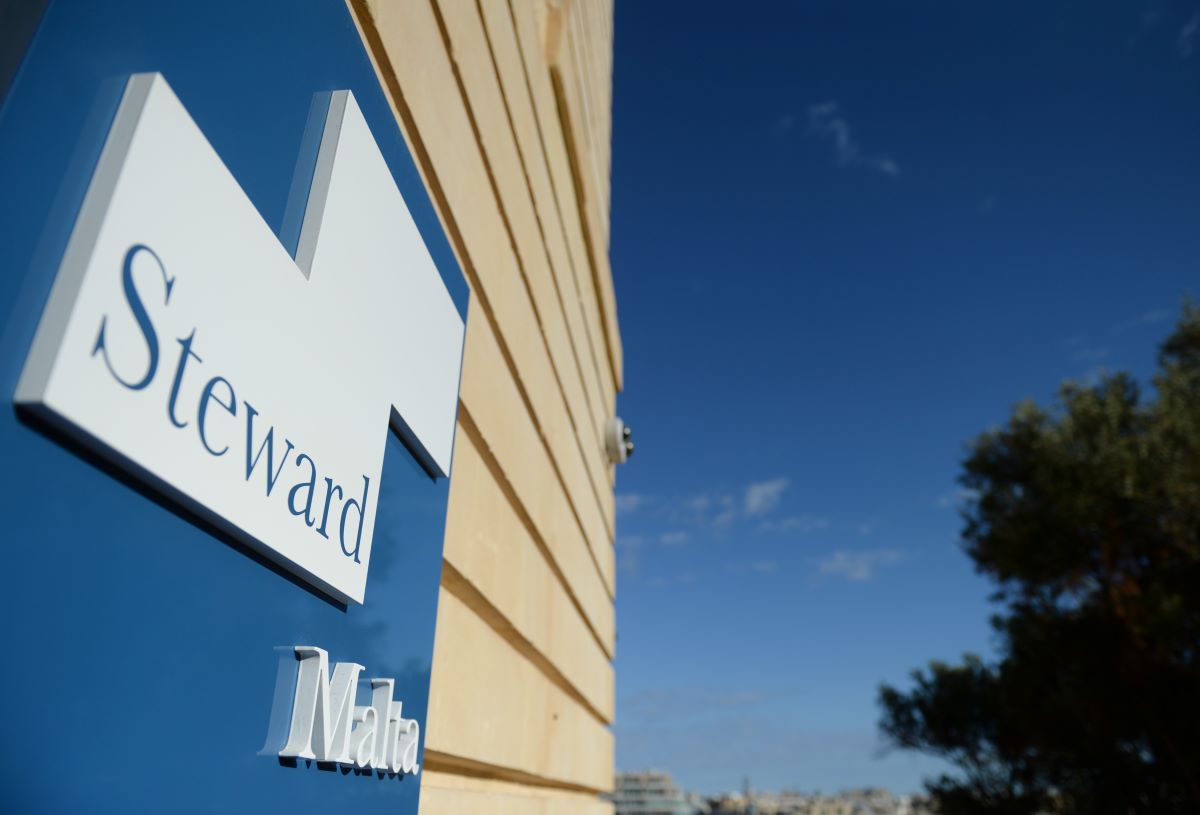In 2020, the total turnover generated by local businesses through e-commerce sales amounted to €2.1 billion, an increase of 6.4 per cent over sales recorded in 2019 according to National Statistics Office (NSO) data released on Monday.
E-commerce sales in Malta are five percentage points higher than the EU average, and that the number of enterprises making sales through e-commerce increased by 2.3 per cent over the 2019 levels, reveals the NSO survey on ICT usage and e-commerce in enterprises.
The survey studied various aspects of the Maltese digital economy and society, focussing on the use of information and communication technologies (ICTs) by enterprise. It surveyed 2,208 enterprises employing a minimum of 10 employees.
In 2020, 83.2 per cent of enterprises had their own website (six per cent higher than EU-27 average), as 10 per cent more employees use the internet for business purposes than did in 2019.

During 2020, 79.4 per cent of the total turnover generated via e-commerce web sales was effected via the enterprise’s own website or apps.
Amongst other findings of the survey, 97.5 per cent of enterprises used the internet during 2020, and 29.2 per cent employed ICT specialists.
Data also reveals that 100 per cent of companies surveyed employing over 250 people used the internet, compared to 99.6 per cent of those employing 50-249, and 96.9 per cent that employ 10-49 people.
Enterprises whose main economic activity is in wholesale and retail trade were the most likely to use the internet, and those engaging in accommodation and food service activities, transport and communication were the least likely.
52.7 per cent of enterprises used cloud computing services, with e-mail, financing and accounting software applications the most common.
The NSO survey concurs with data released by Malta Communication Authority that showed a drastic increase in parcel mail sent in the wake of the pandemic, as e-commerce continues to boom.
Chart: NSO
Malta’s economy grows by 3.1% in first half of 2025, outperforming euro area despite slowdown
Meanwhile the euro area economy expanded by 1.3 per cent year-on-year
Europe must reinvent its growth model, Lagarde tells industry leaders
According to her, the region has become too dependent on other countries for its security needs and essential raw materials
New dwelling approvals surge by 110.3% in Q3 2025
When compared to the same quarter of 2024, the number of approved new dwellings increased by 110.3%






